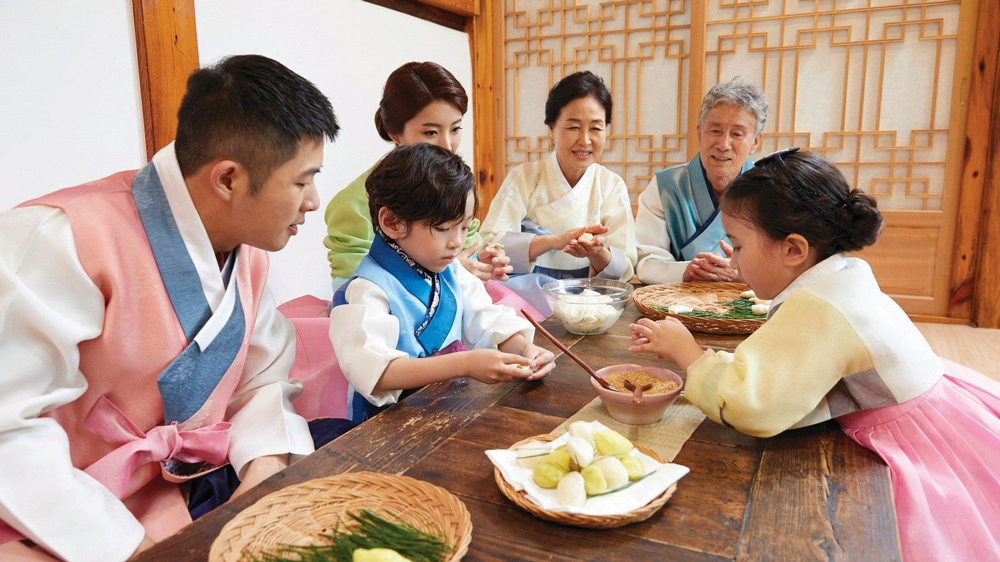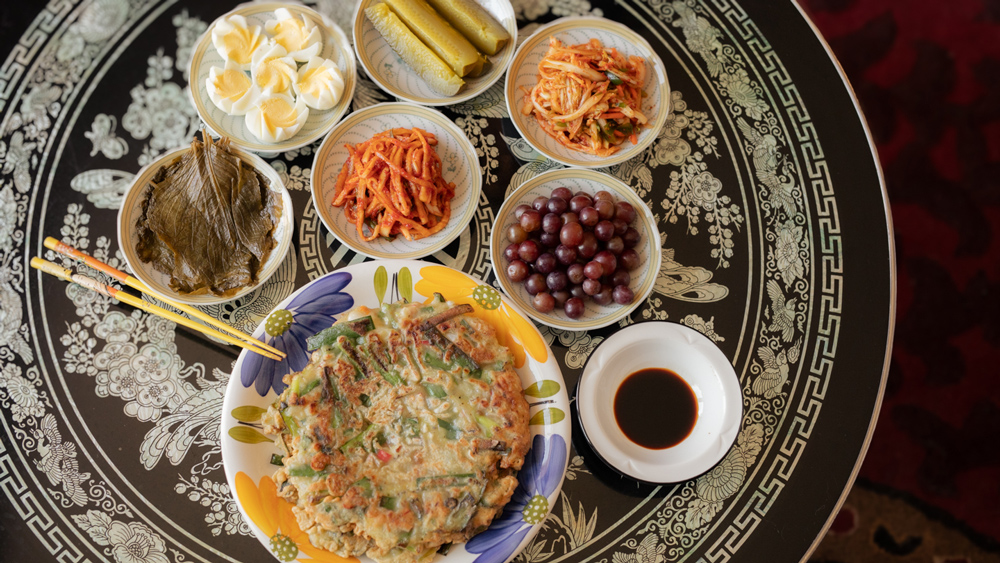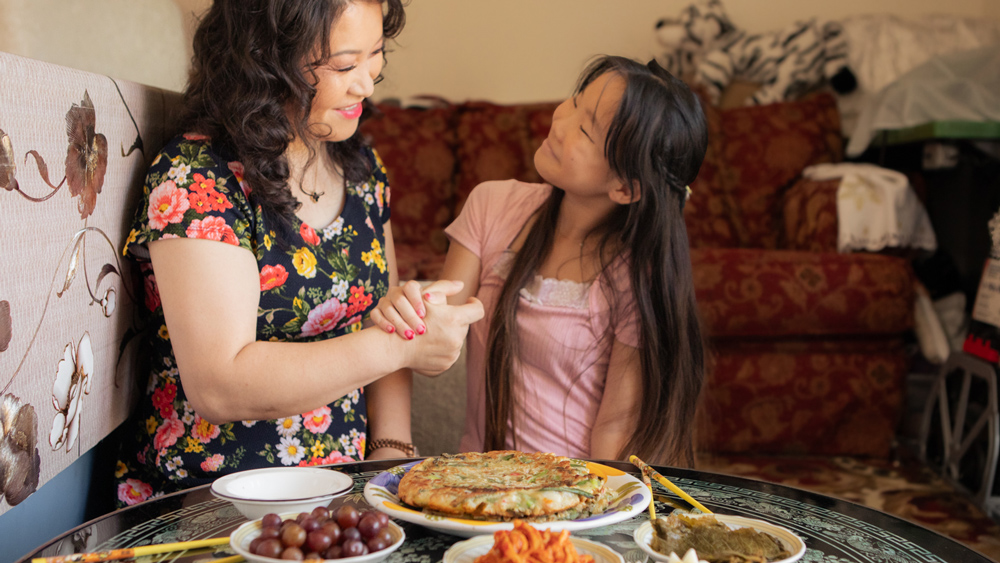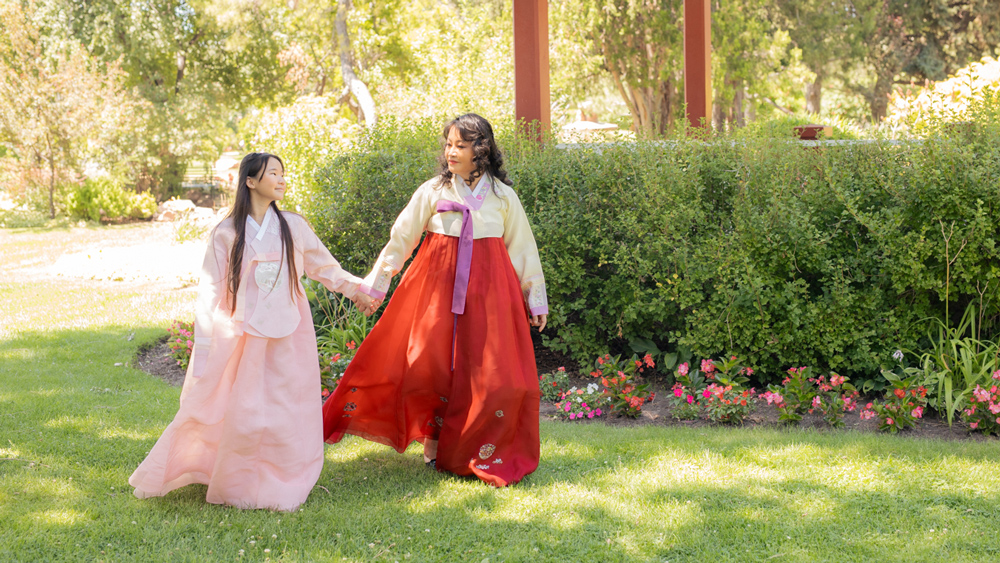North Korean Refugee Rescues: An Update from Our Field Manager
Over the past few years, the impact of COVID-19 has had a devastating effect on the day-to-day lives of North Korean people. Pandemic-related border lockdowns, increased surveillance, and unprecedented restrictions made it impossible for North Koreans to escape and reach freedom.
After a painstakingly long pause on rescues, at the end of 2022 we were finally able to start moving people safely again. Our field team has worked tirelessly to establish new, viable routes and adapt to circumstances on the ground. Navigating unprecedented restrictions and developing new routes has led to significantly higher and extremely volatile rescue costs, but our commitment is stronger than ever to help North Korean refugees reach freedom.
We recently sat down with our field manager, Jennifer* to hear directly about the current needs, challenges, and potential of this new era of rescues.

Could you give us a general overview of the situation in China?
So much has changed since the start of the pandemic. Activists have been kicked out of the country; brokers no longer want to do this work because of the increased surveillance and restrictions. The number of underground rescue networks has shrunk significantly. Navigating these challenges puts us at higher risk, which means that we have to use more resources, including people on the ground, to guarantee that our groups move safely. Because of the increased costs, we soon might have to ask people to wait to be rescued and it’s agonizing, especially because timing is critical in the underground railroad. There are very few moments when everything aligns and it is safe to travel, but because we don’t have funds, North Korean refugees lose those rare, precious opportunities. The North Koreans I’ve been in communication with are living in constant fear because of the increased use of security technology by the state, such as facial recognition with AI. On top of that, domestic violence continues to be a serious issue for many North Korean women who were trafficked or forcibly married in China.
Is there a risk of being sent back to North Korea right now?
Refugees who are caught in China are forcibly sent back to North Korea where they are severely punished. However, because of the pandemic, North Korea sealed its borders in January 2020 and has yet to reopen them. This means that repatriation hasn’t been possible yet, but we are hearing rumors that North Korea will start receiving people again soon.
Many people who have tried to escape were arrested and we’ve heard that currently, there are a large number of North Korean refugees in Chinese prisons.
What kind of situations are people escaping from in China?
It’s mostly North Korean women who were trafficked or forcibly married to Chinese men. Some have been living in China for several years and the pandemic left them stranded with no way to escape. We had heard that some of these women were facing even worse treatment from their Chinese husbands than before. The people who arrived in China in 2019 or early 2020 only had a very short period of time to learn the language, culture, and to adjust before having to quarantine. It has been much more difficult for these people to try to escape from China.
More recently, some of the refugees we’re in communication with have serious health issues. But they can’t go to the hospital because they’re not Chinese citizens and would risk being arrested and sent back to North Korea. They are hoping to make it to South Korea to get the healthcare they need.

And what are some of the challenges that North Koreans in China face day-to-day?
They can’t go outside. There was already a lack of freedom to travel and move around freely before the pandemic, but it has only gotten worse since then. When I speak with them, it feels like they’re losing hope. The reality of how difficult and expensive the journey has become is discouraging, especially because they hear about people who attempted the journey and were caught and arrested. So for people who were connected with us recently, many were shocked to hear about our work. They said it was almost surreal because they didn’t think it was possible to get to freedom at this time.
What motivated these people to leave North Korea in the first place?
It’s different depending on the person. There are usually personal circumstances that lead them to look for better opportunities in China or South Korea. Many people are tricked into human trafficking. Some women choose to live with a Chinese husband of their own will. They believe it’s better to live in China in this way rather than live in North Korea.
What have been the biggest challenges for you?
While I'm very grateful that we've been able to resume rescues, it's a shame that we can only move a limited number of people due to increased costs and heightened security. I stay in close contact with refugees in China who are hoping to reach freedom, and some are in urgent situations. A woman who was 4 months pregnant had to make the journey before her belly got too big. Some refugees have health conditions that need immediate treatment, but they’re unable to go to the hospital. My hope is that we can rescue as many people as possible so they can experience freedom and live the full lives that they deserve.

Since restarting rescues last December, the significant increase in costs have depleted our rescue and resettlement funds, leaving many North Korean refugees waiting, once again, for an opportunity to escape. Your support is needed now more than ever.
Throughout the month of June, all one time gifts made here will go 100% towards our rescue and resettlement efforts. In honor of World Refugee Day 2023 and the countless people waiting for their rare and precious opportunity to reach freedom, give a gift today.
Give Today
*Jennifer is a pseudonym used to protect our field manager’s identity and avoid compromising this work.
Chuseok for North Koreans | No Way Home for the Holidays
Autumn is a significant season for many people and cultures around the world. It’s a period of transition and reflection, gratitude for the days gone by, and celebration of the harvest.
In both North and South Korea, this time of year is celebrated with Chuseok, or the mid-autumn festival. Also known as “Korean Thanksgiving,” it’s a major holiday that predates the division of the peninsula. Chuseok is observed on the 15th day of the 8th month of the lunar calendar, when the harvest moon shines brightest. Traditionally, people return to their ancestral hometowns to gather with family, share a variety of delicious foods, and pay respects to their ancestors.
But for North Korean refugees, there is no going back. Holidays like Chuseok can be a bittersweet time, one of both gratitude for a life in freedom and grief over being unable to celebrate with family still inside North Korea.
“The first Chuseok in the US felt very empty and lonely. It was just me and my two-year-old daughter, Mia, back then. It didn’t feel like a holiday. I had multiple emotions at the same time. Loneliness, emptiness… there were so many feelings that I couldn’t even put into words.“
– Holly, escaped North Korea in 2013
Chuseok celebrations have evolved to look a little different in North versus South Korea, and even in countries like the US where the Korean diaspora have resettled.

Chuseok Traditions in South Korea
In South Korea, Chuseok is considered the largest and most important holiday of the year. It’s celebrated over three days, during which a “national migration” takes place as people all over the country travel to their hometowns or to go sightseeing. Tickets for planes, trains, and buses are sold out months in advance, and freeways are packed with bumper-to-bumper traffic during the holiday period.
On the morning of Chuseok, families hold a memorial service for their ancestors at home, known as charye (차례). A table of food is prepared as an offering, typically featuring rice cakes, fresh fruits and vegetables, meat dishes, and the favorite meals of deceased loved ones. Families will also visit ancestral gravesites, a custom known as seongmyo (성묘), to pay their respects and tend to the graves.

From the ancestral table to large family meals, food is a central part of Chuseok celebrations. The defining dish of this holiday is seongpyeon (송편), a chewy, sweet, and nutty half-moon shaped rice cake steamed in fresh pine needles. It’s traditionally made with rice from the year’s harvest, finely milled into flour. Preparing seongpyon becomes a family activity as each piece is shaped by hand and filled with red bean paste, toasted sesame seeds, or chestnuts.
Other holiday foods include pajeon(파전), a crispy, savory pancake made with green onions; galbijjim (갈비찜), sweet and savory braised short ribs; and japchae(잡채), glass noodles stir-fried with meat and vegetables.

How Chuseok is Celebrated in North Korea
In North Korea, Chuseok is just a one-day celebration. While it is considered a key traditional holiday, its importance has been minimized relative to national holidays like the birthdays of Kim Il-sung and Kim Jong-il, and the anniversary of the founding of the Worker’s Party.
On both traditional and national holidays, North Koreans are urged to visit the statues of Kim family leaders or the Kumsan Palace of the Sun in Pyongyang, where the bodies of Kim Il-sung and Kim Jong-il lie.
It is much less common for widespread travel to take place during Chuseok due to severe travel restrictions and poor transportation infrastructure. However, these constraints have also made it so that generations of North Koreans remain in close proximity to their hometowns and relatives. For Chuseok, people gather with their nearby family members. Just like in South Korea, they’ll prepare special foods as offerings for charye, and then visit ancestral grave sites to pay respects.
After ancestral rites, festivities become a community affair with traditional food and folk games shared amongst family, friends, and neighbors. Songpyeon is also a holiday staple, but the North Korean version is made with a minced meat and vegetable filling, and are twice as big as South Korean ones. Common folk games are yutnori (윷놀이), a board game, and ssireum (씨름), or Korean wrestling.
Holly & Mia: A Legacy of Freedom
It’s been over a decade since Holly left her hometown in North Korea. But whenever she makes pajeon (파전), it takes her right back to her childhood—sitting by the frying pan and watching her mom cook, eagerly awaiting a taste. “Pa”(파) means green onion and “jeon”(전) refers to foods that have been pan-fried or battered. There are many varieties of “jeon,” made with everything from potatoes to zucchini, seafood, kimchi, and more.
Holly saw her mom cook this dish countless times in North Korea. It was an inexpensive, everyday staple, but also an essential part of the holidays. Every year for Chuseok, the mouthwatering aroma of oil and batter would draw everyone to the kitchen, where a colorful assortment of jeon was being prepared.
Holly now lives halfway across the world from North Korea, but every year during Chuseok, she sets out an offering table for charye. For hours, she prepares foods like pajeon with great care, remembering and honoring her parents and loved ones, who she can’t be with for the holidays.

In 2016, Holly reached freedom through LiNK’s rescue networks with one-year-old Mia in her arms.
Mia is now at an age where she’s able to understand some of the things her mother went through. Holly has begun to open up more about her life in North Korea, and does her best to keep their small family connected to their Korean heritage. She takes Mia to Korean language school on Sundays, and makes an effort to celebrate cultural holidays, like Chuseok. What can’t be put into words, Holly communicates through food—their dinner table is always full of delicious Korean cooking.
In 2024, Holly received her US citizenship, nine years after her resettlement!
"When I obtained my US citizenship, it felt like my escape journey was finally complete. I cried and felt so grateful to the US for giving me a new life. My greatest happiness is seeing Mia have a childhood free of the painful hardships that defined mine.”

These days, Chuseok has become a lively gathering with the many friends and neighbors they’ve met over the years! Holly gathers with other Koreans in the community, and they go all-out preparing delicious seongpyeon and pajeon. She takes great pride in wearing traditional hanboks with Mia, and explaining each dish when guests arrive. The festivities always continue long after dinner, with Korean games like jegichagi, a version of hacky sack, and yutnori, a board game.
Living in the US, Holly and Mia have been introduced to new traditions too. Just a month after Chuseok, their community gathers again to celebrate Thanksgiving with turkey and pumpkin pie, in true American fashion.

Holly still has hope that in her lifetime, she’ll be able to celebrate Chuseok with all her family and bring Mia to visit her hometown in North Korea.
We’re working towards the day when families don’t have to be separated. To date, LiNK has rescued almost 1400 North Korean refugees and their children, reuniting over 500 people with their families in freedom. As we’re helping North Koreans, like Holly, build new lives, we’re also leading initiatives to increase change inside North Korea, through advocacy, information access, and more.
Become a monthly donor and create a long-lasting legacy of freedom. Your support will rescue North Korean refugees waiting for their chance to escape right now, and fuel work that is increasing change and opening inside North Korea.




